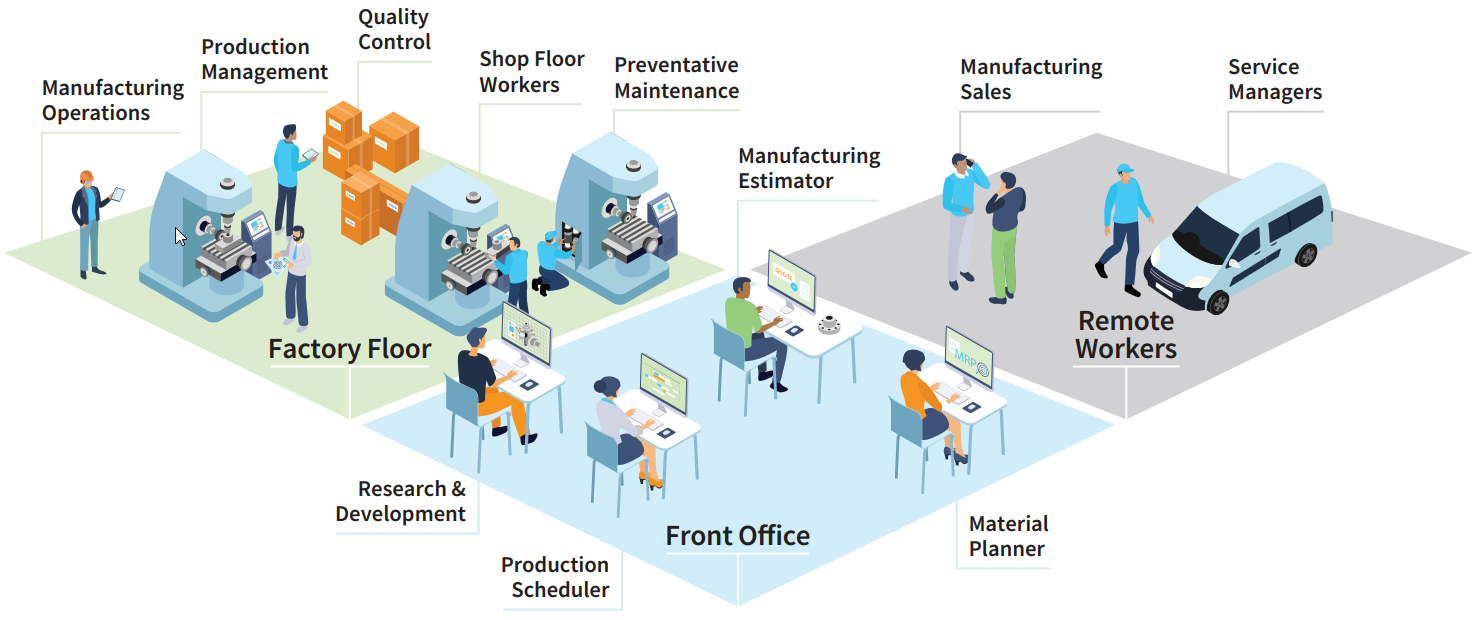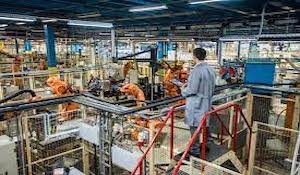Discover the Latest Manufacturing Industry Trends in ERP Implementation
Several Key Trends in the Manufacturing Industry Are Shaping How Businesses Operate Cloud-based Enterprise Resource Planning (ERP) technology can...

In the face of an ongoing shortage of discrete manufacturing labour, companies have the opportunity to implement strategic approaches that not only attract top talent but also empower existing employees to utilize their skills and knowledge more effectively.
According to a recent survey conducted by the National Association of Manufacturers, a staggering 74% of manufacturing companies consider attracting and retaining a high-quality workforce as their top business challenge. As we approach the end of Q2 2023, the shortage of manufacturing labour continues to be a dominant topic within the industry.
This shortage is a result of various factors, including the workforce disruptions caused by the pandemic, the retirement of a significant number of skilled manufacturing workers, and the lack of qualified replacements. In fact, a study conducted by Deloitte and The Manufacturing Institute predicts that by 2030, there could be a shortage of 2.1 million manufacturing jobs, which will have a significant impact on productivity, innovation, competitiveness, and the overall GDP.
While this situation may seem concerning, there are two key initiatives that companies can implement to overcome the manufacturing labour shortage. The first is to attract and retain talent from a wider pool of candidates, ensuring that the workforce is diverse and skilled. The second is to invest in modern manufacturing software, such as Acumatica ERP, which can streamline operations, enhance efficiency, and empower employees to utilize their skills and knowledge more effectively.
By adopting these strategies, companies can not only overcome the challenges posed by the labour shortage but also thrive in the competitive manufacturing landscape.
To address the pressing need to fill vacant positions left by retiring Baby Boomers, manufacturers face the challenge of finding capable individuals who are willing to step up. Deloitte's research highlights evolving career expectations, lack of interest in the industry, and inadequate education and training as the primary factors contributing to the skills shortage. To overcome these hurdles, manufacturers must reimagine the power of incentives, such as flexible schedules that prioritize work-life balance, remote and hybrid work options, and a strong commitment to fostering a socially and environmentally responsible culture. These enticing incentives attract highly skilled workers and foster long-term employee loyalty.
In addition to incentives, manufacturers should also focus on expanding their talent pool by tapping into the untapped potential of a critical segment: women. According to the U.S. Department of Commerce, women currently only make up approximately 30% of the 15.8 million people employed in manufacturing industries. However, a joint report by Xometry and The Women in Manufacturing Association (WiM) reveals that women are highly interested in pursuing careers in manufacturing, with 82% of them likely to recommend the sector to others. Notably, the report also highlights that women who pursue STEM education are more than twice as likely as men to choose a career in manufacturing.
By offering attractive incentives and actively recruiting qualified women, manufacturers can effectively attract a robust and enduring workforce. Furthermore, Deloitte's study suggests that incorporating companywide diversity, equity, and inclusion (DEI) principles can further enhance business performance and innovation. Companies with a diverse workforce not only experience increased productivity and better organizational management but also gain a competitive advantage in the industry.
In addition to providing attractive incentives to current and potential workers, investing in manufacturing software that empowers employees to maximize their skills and training can also alleviate the challenges of understaffing. Traditionally, the manufacturing industry has been slow to embrace new technologies, relying heavily on a skilled labour force and machinery to produce high-quality products from raw materials. However, times are changing, and companies can now harness the power of advanced manufacturing software to enhance their operations.
However, the landscape is shifting.
The manufacturing industry is witnessing a significant shift towards software adoption to streamline operations and boost productivity. In a recent article by SelectHub, it is highlighted that manufacturers are increasingly embracing advanced manufacturing ERP solutions to address their workforce challenges. These solutions provide a centralized platform for managing data, monitoring inventories, supporting supply chain operations, and improving reporting and analytics. By automating tasks that were previously accomplished through manual labour, such as data entry and job progress monitoring, manufacturing ERP solutions reduces the need for a large workforce while increasing collaboration and empowering employees to be more productive and efficient. Additionally, cloud-based ERP solutions offer on-the-go connectivity, allowing employees to access real-time data anytime, anywhere, via any web-enabled device. This accessibility and the intuitive nature of modern ERP technology make it particularly appealing to the digital-native workforce, including Gen X and Millennial demographics. With accurate, real-time data at their disposal, companies can forecast labour needs and allocate resources more effectively. Overall, advanced manufacturing ERP solutions are well-equipped to meet the current needs of the manufacturing industry.
Our team of experts is available to provide prompt answers to any inquiries and to arrange a personalized demonstration for you.
Aqurus believes in a custom approach to integrating MRP into your business. By providing better and targeted communications and AI-driven technologies to manage new customer care expectations, Acumatica’s applications can provide improved organization and efficiency to grow your business powerfully.
At Aqurus, we know how valuable Acumatica ERP software is for businesses – especially those in Manufacturing, Distribution, eCommerce, and the retail industry. If you’re interested in how Acumatica’s Cloud ERP Software can boost your business, the Aqurus team is passionate about smooth implementation and ongoing support.
The team at Aqurus can help you too. Call (403) 768-0322 or email today!

Several Key Trends in the Manufacturing Industry Are Shaping How Businesses Operate Cloud-based Enterprise Resource Planning (ERP) technology can...
As a manufacturer, you make money on the shop floor. Therefore to grow and increase profitability, you need real-time visibility of every detail...

Electrical Manufacturing Advances with Industry 4.0 and Smart Manufacturing Modern ERP solutions for the electronics manufacturing industry are...